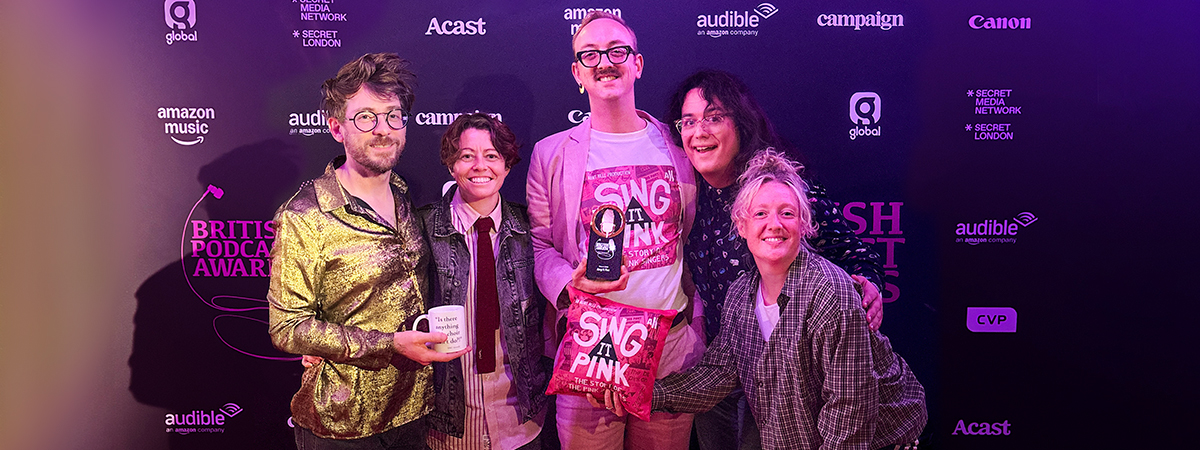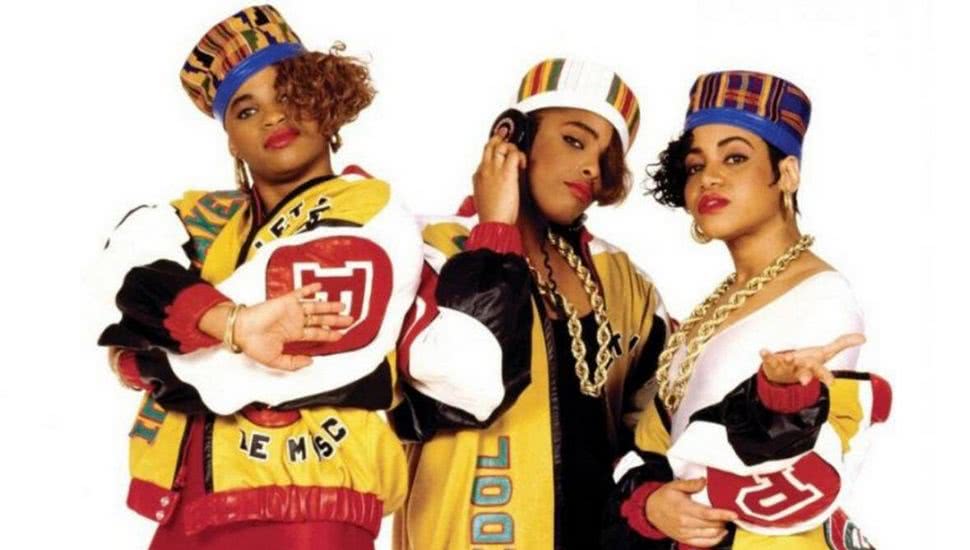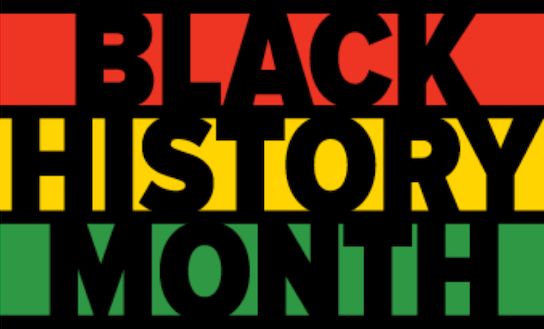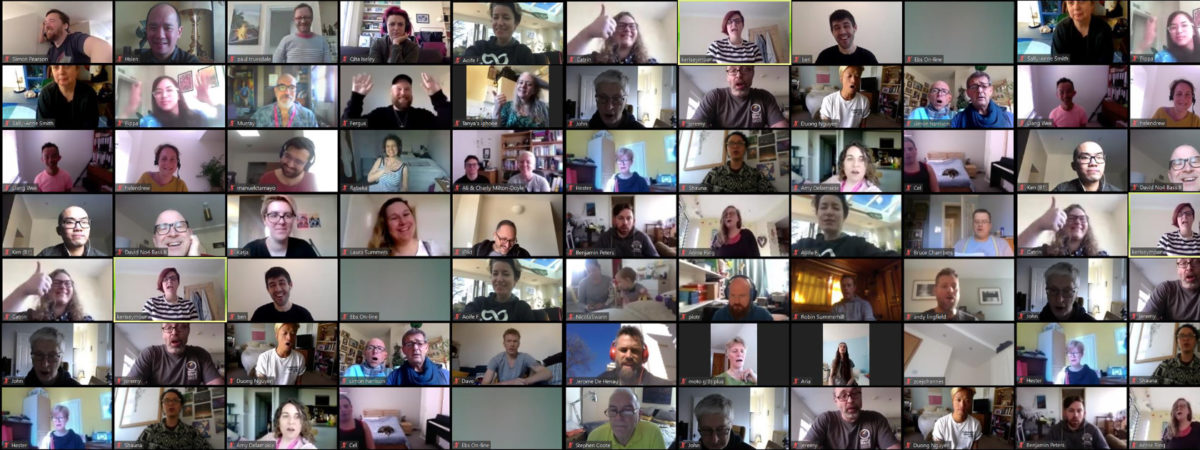The Pink Singers have won a British Podcast Award for their LGBTQ+ history series, Sing It Pink
LGBTQ+ community choir The Pink Singers has won the Bronze award in the Best History Podcast category at the British Podcast Awards for their series, Sing It Pink. Celebrated in a ceremony at the O2 this weekend, the series tells the choir’s incredible story of queer community singing over forty years. The choir’s Executive Producer for the series, Chris Scales, said:
“Working with Aunt Nell and all our amazing contributors to make this series telling the story of The Pink Singers was a dream come true. It shines a light on the choir’s inspiring journey creating a joyous community and a safe place for queer singers to be themselves”.
The series begins in 1983, when activists Brian Kennedy and Mark Bunyan decided to create a new lesbian and gay choir in London, and the Pink Singers became the first mixed LGBTQ+ choir in Europe. Now a registered charity, the story of the choir’s growth over the last four decades covers major changes for the community, including Section 28, the HIV-AIDS crisis, women’s rights, trans inclusion, and international activism.
The series brings the Pink Singers’ story to life through powerful and intimate interviews with choir members, and by digging into the choir’s extensive archives held at Bishopsgate Institute. It was commissioned as part of the Pink Singers’ 40th anniversary project Sing it Loud, Sing it Queer, made possible with the support of the National Lottery Heritage Fund. On hearing of the success of the podcast award win, the National Lottery Heritage Fund said:
“Many congratulations, Pink Singers – we’re so proud of you and everything you have achieved in the project!”
The series was produced by Aunt Nell, an award-winning podcast company that specialises in telling queer heritage stories, including The Log Books, also being published as a book next year. Tash Walker, co-founder of Aunt Nell, said:
“We are thrilled to see Sing It Pink be recognised by the British Podcast Awards, these stories are integral to our British history not just our queer history. When we heard about the powerful story of the Pink Singers, and the depth of their archive, we knew it would make for an extraordinary podcast series.”
The British Podcast Awards is the annual “Oscars of podcasting,” established in 2017 to celebrate outstanding content within the British podcast industry.
Listen to Sing It Pink now to catch up on the full series. Learn more about the Pink Singers heritage project and history in their project booklet. The choir is open to offers to fund season 2. For further enquiries email archive@pinksingers.co.uk.
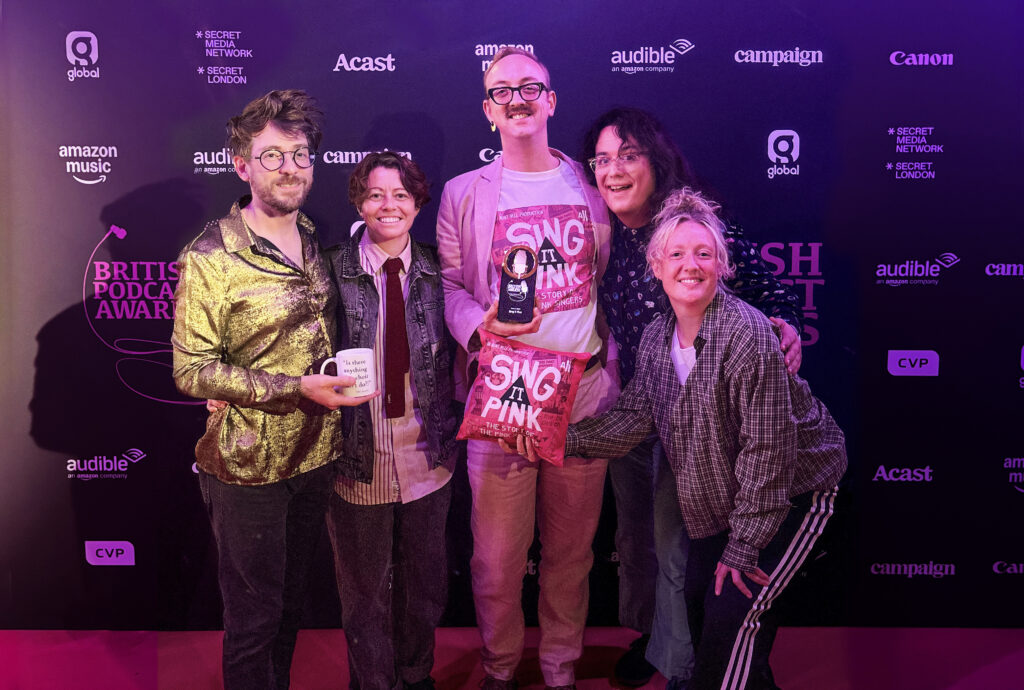
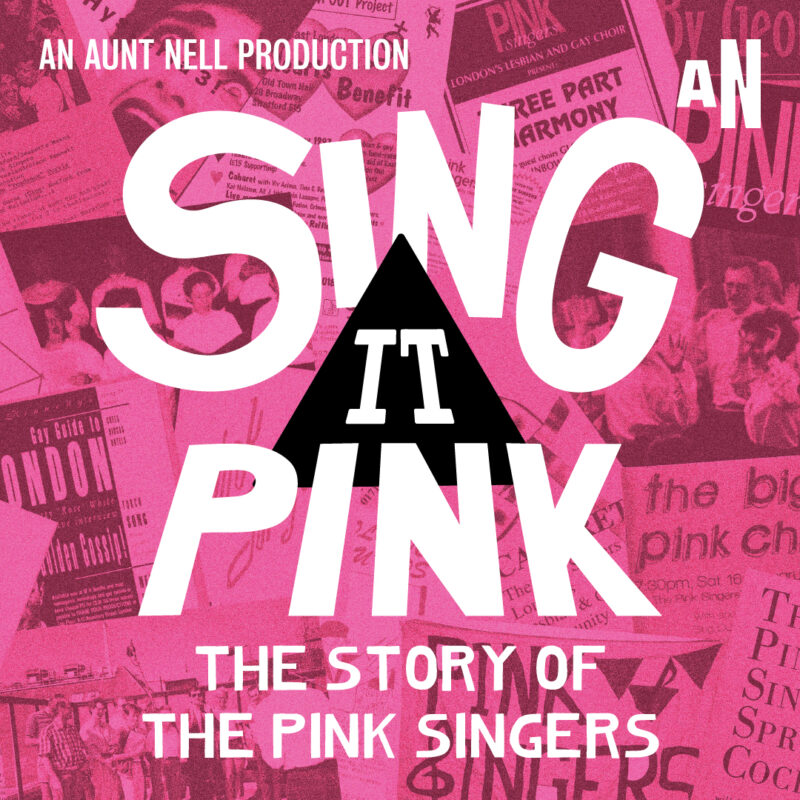
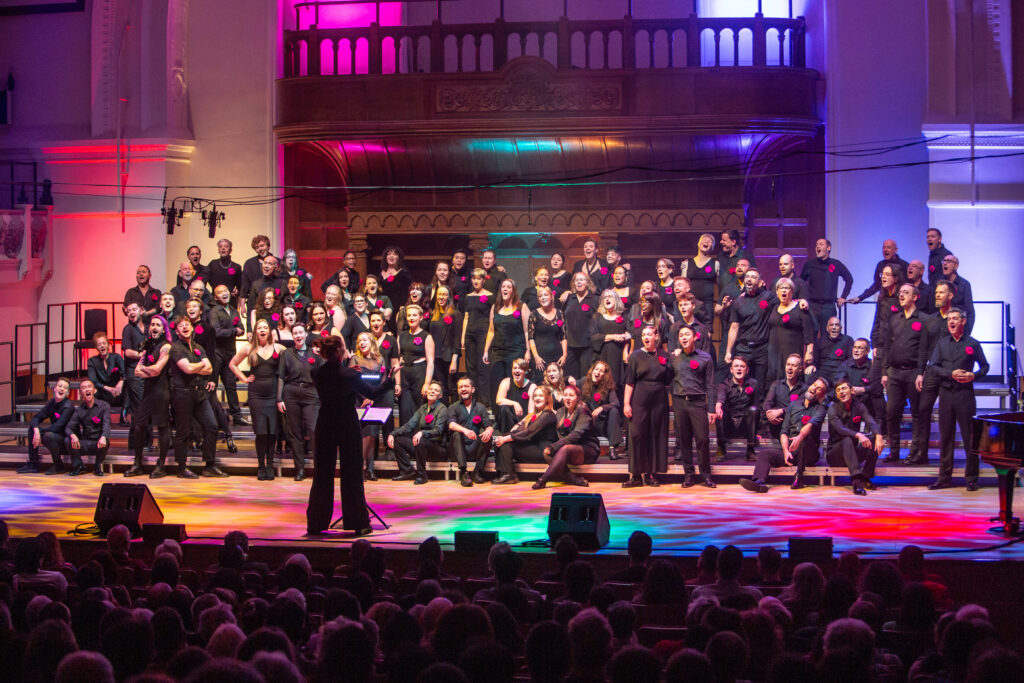
Sing It Pink – series credits:
Producer: Rachel Byrne
Assistant Producer: Marnie Woodmeade
Audio Mix: David Pye
Executive Producers for Aunt Nell: Tash Walker & Adam Zmith
Executive Producer for the Pink Singers: Chris Scales
Made possible with support from the National Lottery Heritage Fund
With thanks to Bishopsgate Institute
